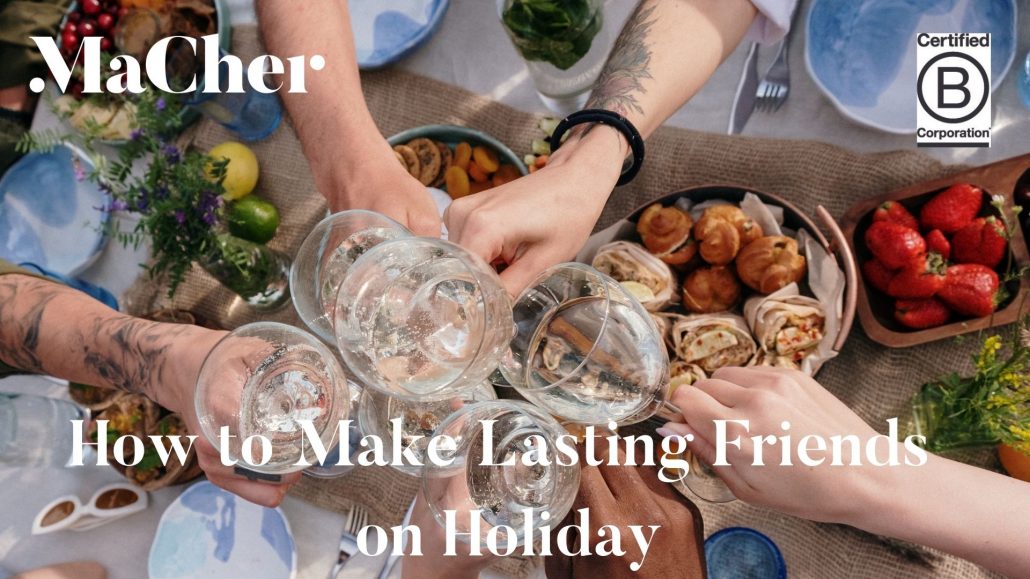I have friends who are relatively new to cruising. They keep telling me about all these wonderful people that they have met. They now vacation at each other’s houses and meet up regularly for dinners and conversations with those who live locally. To what extent is their experience usual – can you make lasting friendships on holiday?
While in childhood making a friend is often no more nuanced than asking the question ‘Will you be my friend?”, our personalities and networks are more established as adults and meeting new friends becomes far more difficult.
Research shows that people’s personal and friendship networks have shrunk over the last 25 years. At the same time, other research has found that there is enormous importance to having strong social connections throughout life. People with strong social networks have been found to have greater pain tolerance, a stronger immune system, and a lower risk of depression and early death. Knowing how to make a friend at all stages of life can therefore be vitally important.
Friendships don’t just happen, they take time, effort and common ground for discussion. A study from the University of Kansas found that it takes around 200 hours to become a close friend. With trust, genuine interest in the other person and gradually increasing the depth of questions and answers however, researchers from Stony Brook University have been able to create situations where strangers can create friendships in very short spaces of time (around 45 minutes).
Making friends on vacation
People on vacation are often more relaxed, in a happier state of mind and therefore more open to the idea of connecting with others. These are key components of developing the bonds with people that lead to friendship.
Trips which build closer engagements between people such as tours, cruises and backpacking, tend to lend themselves to developing closer friendships with other travelers. Travelers on these kinds of trips tend to spend more time with one another, engage in activities and share space and services. But even on these kinds of holidays, not all travelers will be open to friendship.
Facilitating, not forcing
On any trip, there are people that one would have little or no interaction with. There are those who share fun or playful conversations but stay largely on superficial or ‘travel’ talk. There are however others who get to know one another as individuals and establish deeper bonds and even friendship.
The development of friendship bonds must happen naturally. These bonds cannot be forced or imposed by a hostel, tour or cruise company (shared dining tables for example). Individual initiation will be the driver for the relationship.
What can companies do?
Companies can be facilitators of these relationships. This requires both an understanding of the mindset of the travelers and their willingness to engage with others. (i.e. Those traveling with a big group of friends/relatives may be less likely to reach out to other travelers.) It also needs companies to create the right opportunities for like-minded individuals to meet each other such as through small group activities, games or specialised events.
Trips that support a strong sense of camaraderie and shared purpose will contribute significantly to the trip overall experience and the chance of friendships to develop afterwards. Princess Cruises is an example of a company that has recognized the potential power of cruise as creator of friendships. It has been working to facilitate relationships by creating opportunities for small groups of like-minded individuals to connect in based on their known hobbies i.e. marathon runners, horse riders etc.
MaCher is happy to suggest ways companies can gain greater understanding of the detailed hobbies and interests of their customers and then create products/services that help support small group interaction. Drop us a line!


